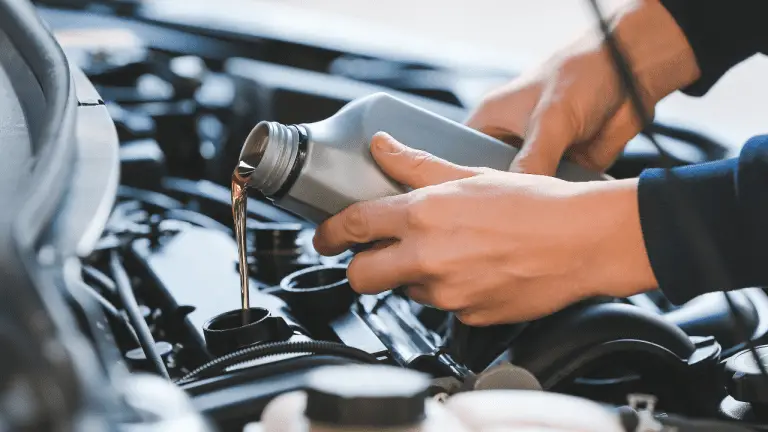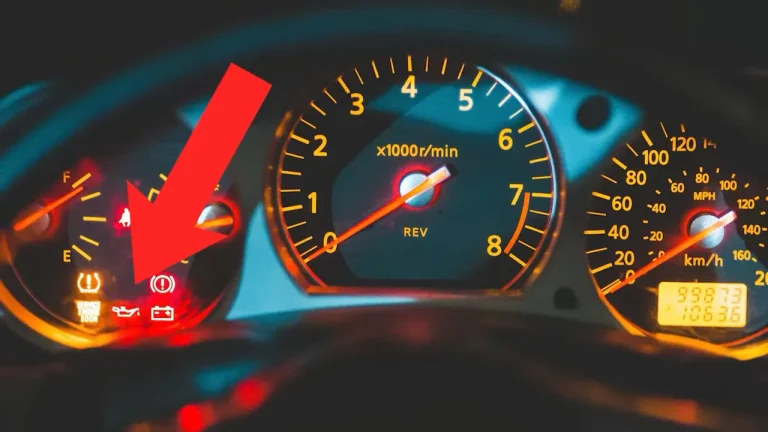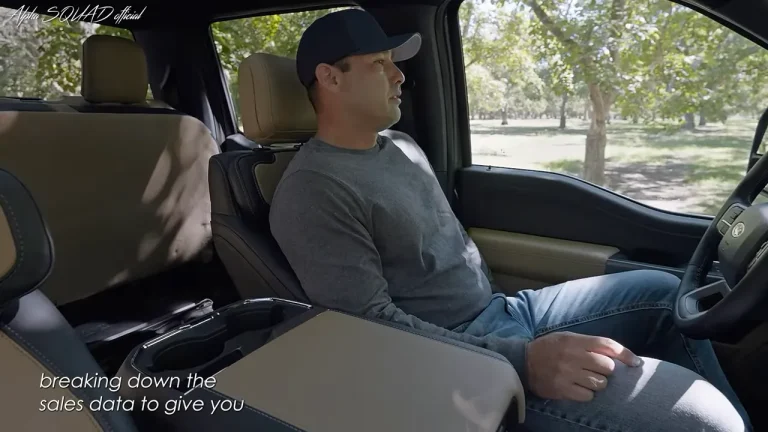Is It Bad to Floor Your Car? Discover the Shocking Truth!
Flooring your car can be detrimental to its overall health and performance. Driving at maximum throttle for extended periods of time can lead to excessive wear and tear on the engine, transmission, and other vital components, potentially resulting in costly repairs and reduced lifespan of the vehicle.
Additionally, aggressive acceleration can also increase fuel consumption and carbon emissions, negatively impacting the environment. It is recommended to drive responsibly and avoid constantly flooring the car for optimal longevity and efficiency.
The Danger Of Constantly Flooring Your Car
Flooring your car, or driving with the accelerator pedal fully pressed down, may seem exhilarating and thrilling. However, constantly engaging in this driving behavior can have several negative consequences for both your vehicle and the environment. In this section, we will explore the dangers of constantly flooring your car and why it is a practice to avoid.
The Impact On Engine Performance
Driving with the pedal fully pressed down can have a significant impact on your car’s engine performance. Here are the key points to consider:
- Excessive strain: Constantly flooring your car puts excessive strain on the engine, causing it to work much harder than usual. This can lead to premature wear and tear on various engine components.
- Engine overheating: The increased workload on the engine can contribute to overheating, especially in older or poorly maintained vehicles. Over time, this can result in engine damage and reduced performance.
Increased Wear And Tear On Brakes And Tires
The excessive use of the accelerator pedal also takes a toll on other parts of your car, particularly the brakes and tires. Here are the key points to consider:
- Brake wear: Constantly flooring your car often requires sudden and aggressive braking to control speed. This can lead to increased wear and tear on your brake pads and rotors, resulting in more frequent replacements and added maintenance costs.
- Tire wear: Rapid acceleration and hard braking put added stress on your tires, causing them to wear out faster. This can reduce their lifespan and necessitate more frequent tire replacements.
Reduced Fuel Efficiency And Increased Emissions
Constantly flooring your car is also detrimental to fuel efficiency and contributes to increased emissions. Here are the key points to consider:
- Reduced fuel efficiency: Flooring your car leads to a rapid consumption of fuel due to the increased engine workload. This results in a significant decrease in fuel efficiency, as your vehicle consumes more fuel to sustain the higher power output.
- Increased emissions: The excessive fuel consumption associated with flooring your car leads to higher emissions of greenhouse gases and pollutants. This not only harms the environment but can also result in failing emissions tests and increased environmental impact fees.
To summarize, while it may be tempting to floor your car for a momentary thrill, constantly engaging in this behavior has detrimental effects on engine performance, brakes, tires, fuel efficiency, and emissions. It’s important to drive responsibly and avoid prolonged periods of flooring your car to maintain your vehicle’s health and reduce your environmental impact.
Understanding The Risks Of Speeding
Is It Bad To Floor Your Car?
We all know the thrill of pressing down on the accelerator and feeling the powerful surge of our car as it takes off at high speed. However, is it bad to floor your car? In this blog post, we will be exploring the risks of speeding and the consequences that come with it.
Safety Issues For You And Other Drivers
When you decide to floor your car and speed down the road, you may not realize the potential safety hazards you are putting yourself and other drivers in. Here are some key points to consider:
- Limited control: Speeding reduces your ability to control your vehicle, particularly when navigating corners or unexpected obstacles.
- Increased stopping distance: The faster you are going, the longer it takes for your car to come to a complete stop. This can be incredibly dangerous in emergency situations where split-second decisions can make all the difference.
- Reduced reaction time: Speeding impairs your ability to react quickly to changing traffic conditions or hazards on the road.
- Decreased visibility: Higher speeds can limit your field of vision, making it more difficult to spot pedestrians, cyclists, or other vehicles.
Increased Risk Of Accidents And Collisions
One of the most significant risks of speeding is the increased likelihood of accidents and collisions. Consider the following points:
- Greater impact force: The faster your car is traveling, the stronger the impact force in the event of a collision. This can lead to more severe injuries or even fatalities.
- Reduced maneuverability: Speeding reduces your car’s maneuverability, making it harder to avoid potential accidents or obstacles on the road.
- Unpredictability: When cars travel at high speeds, they become more unpredictable to other drivers on the road, increasing the risk of collisions due to sudden lane changes or unexpected movements.
- Increased chances of rollovers: Speeding increases the chances of a vehicle rolling over, especially when taking sharp turns or driving on curved roads.
Consequences Of Speeding Tickets And Fines
If the safety risks aren’t enough to deter you from speeding, the potential consequences of getting caught might make you think twice. Consider the following points:
- Heavy fines: Speeding tickets often come with hefty fines that can put a dent in your wallet. The severity of the fine depends on the extent of your speeding violation.
- License suspension: Repeated speeding offenses can result in the suspension or revocation of your driver’s license, making it challenging to commute or travel.
- Increased insurance rates: Speeding violations can lead to an increase in your car insurance premiums, as insurance companies consider speeding as a risky behavior.
- Legal repercussions: In some cases, excessive speeding can result in a criminal charge, which can have long-lasting consequences on your record.
Remember, safety should always be a priority when you’re behind the wheel. So, think twice before flooring your car and putting yourself and others at risk. Speeding may give you a temporary rush, but the consequences can be far-reaching. Let’s all commit to driving responsibly and ensuring the safety of ourselves and fellow drivers on the road.
The Importance Of Responsible Driving Habits
Flooring your car, or pushing the accelerator to its limit, can be an exhilarating experience. The surge of power, the rush of adrenaline—it’s no wonder many people are drawn to this thrill. However, it’s essential to consider the consequences of such actions.
The importance of responsible driving habits cannot be emphasized enough. In this section, we will explore how maintaining a healthy balance between performance and safety, regular maintenance and upkeep, and safe acceleration techniques are vital for being a responsible driver.
So, let’s delve deeper into these topics.
Maintaining A Healthy Balance Between Performance And Safety
Maintaining a balance between performance and safety is paramount when it comes to responsible driving. Here are key points to consider:
- Understand your vehicle’s limitations: Each car has its own performance capabilities and safety features. Familiarize yourself with these specifications to gauge how much acceleration is safe for your vehicle.
- Adhere to speed limits: Speed limits are in place for a reason—your safety. Going beyond the speed limit not only puts yourself at risk but also endangers others on the road. Always obey the posted speed limits.
- Be aware of road conditions: Road conditions can change quickly, affecting the traction and control of your vehicle. Adjust your driving accordingly, especially when facing adverse weather or road hazards.
- Stay focused on the road: Distractions can severely impact your ability to react to sudden accelerations or potential hazards. Keep your attention on the road to ensure you can respond appropriately.
Regular Maintenance And Upkeep To Optimize Car Performance
Regular maintenance and upkeep play a crucial role in optimizing your car’s performance. Consider the following key points:
- Follow the manufacturer’s maintenance schedule: Car manufacturers provide specific guidelines for regular maintenance. Adhering to these schedules ensures that your vehicle operates at its best, reducing the likelihood of acceleration or performance issues.
- Check and maintain fluid levels: Adequate fluid levels, such as engine oil, brake fluid, and coolant, are essential for optimal performance. Regularly inspect and top-up these fluids as needed.
- Keep tires in top condition: Properly inflated tires with sufficient tread depth provide the necessary grip and stability. Check tire pressure regularly and replace worn-out tires promptly.
- Address any warning lights promptly: Ignoring warning lights on your dashboard can lead to more significant problems down the line. Consult a mechanic to identify and rectify any issues indicated by warning lights.
Safe Acceleration Techniques For Better Control
Safe acceleration techniques not only improve your control over the vehicle but also contribute to responsible driving habits. Consider the following key points:
- Gradual acceleration: Smoothly and gradually pressing the gas pedal allows your car’s weight to distribute evenly. This leads to better traction and control, reducing the risk of skidding or losing control.
- Maintain a safe following distance: Leaving enough space between your vehicle and the one in front enables you to accelerate and decelerate smoothly. It also provides ample time to react to any sudden changes in traffic.
- Avoid sudden acceleration: Abruptly flooring the accelerator can cause a jerky start, which not only affects passengers’ comfort but also puts stress on the vehicle’s mechanical components. Opt for smoother acceleration instead.
By prioritizing responsible driving habits and considering the importance of maintaining a healthy balance between performance and safety, performing regular maintenance and upkeep, and practicing safe acceleration techniques, you can ensure a safer driving experience for yourself and those sharing the road with you.
So, next time you’re behind the wheel, remember that responsible driving is essential for both your own well-being and that of others on the road. Stay safe!
Conclusion
While the thrill of quickly accelerating and flooring your car may be enticing, it is important to consider the potential negative consequences. Excessive flooring can lead to increased wear and tear on your vehicle, resulting in costly repairs down the line.
Additionally, it can negatively impact your fuel efficiency, leading to decreased mileage and increased fuel consumption. Moreover, it can also contribute to air pollution and harm the environment. Instead of constantly pushing your car to its limits, it is advisable to adopt a more responsible driving approach.
By driving within the recommended speed limits and avoiding sudden accelerations, you can maintain your vehicle’s longevity, reduce fuel consumption, and contribute to a cleaner environment. Remember, it’s not only about protecting your car, but also about ensuring the safety of yourself and others on the road.
Ultimately, finding the right balance between enjoying the power of your car and driving responsibly is key.
- Why Are My Car Headlights Not Bright Enough? - May 9, 2024
- How Long Can You Drive With An EVAP Leak? - May 9, 2024
- What Does B Stand for in a Car? [Full Guide] - May 9, 2024



